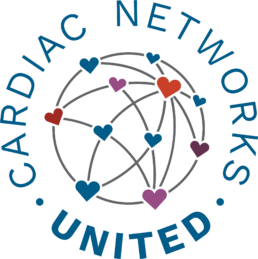
Cardiac Networks United
Children’s hospitals unite through a network of registries to accelerate research and quality improvement for patients with congenital heart disease.
“Cardiac Networks United member institutions span more than two-thirds of all hospitals caring for congenital heart patients in the U.S. It's allowing us to break down traditional barriers and conduct research across multiple phases of care so that we can study and improve outcomes across the lifespan of those affected by CHD."
Sarah Pasquali, M.D., M.H.S.
Co-director, Cardiac Networks United
Customer Since
2013
Clinical Registry Use Cases
Accelerating Research to Improve Outcomes for Patients With Congenital Heart Disease
Nearly 40,000 infants born in the United States each year have some form of congenital heart disease (CHD), making it the most common birth defect affecting 1 in every 110 babies. Although pediatric cardiologists and researchers have improved outcomes considerably over the past few decades, many children still experience significant health issues over the course of their lifetimes, according to Michigan Medicine C.S. Mott Children’s Hospital.1
Watch CNU’s story
To date, many of the largest research efforts in the field encompass only a small part of a patient’s and family’s experience with CHD: a surgery, a stay in the ICU, a hospitalization. Other entities focus on only one disease. While these efforts have been successful in their own regard, the lack of integration between groups of clinicians and researchers limits the effectiveness of research and quality improvement initiatives. Data live in siloed repositories and are difficult to access. Smaller organizations are unable to develop infrastructure to efficiently execute research and quality improvement projects. New approaches are necessary to make the next leap in CHD care.
To address these challenges, a group of physicians and researchers, led by Jeffrey Anderson, M.D., M.B.A., Michael Gaies, M.D., M.P.H., and Sara K. Pasquali M.D., M.H.S. teamed up to establish Cardiac Networks United. The member organizations who form this network committed to sharing data and expertise with one another to accelerate discovery and improvement in the care of patients with pediatric and congenital heart disease. Utilizing a shared infrastructure and clinical data registry powered by ArborMetrix holds great promise to improve the lives of patients and families.
“Cardiac Networks United member institutions span more than two thirds of all hospitals caring for congenital heart patients in the U.S.,” Dr. Pasquali said. “It’s allowing us to break down traditional barriers and conduct research across multiple phases of care so that we can study and improve outcomes across the lifespan for those affected by CHD.”1
The five founding organizations of Cardiac Networks United include:
- Pediatric Cardiac Critical Care Consortium (PC4)
- Pediatric Acute Care Cardiology Collaborative (PAC3)
- Cardiac Neurodevelopmental Outcome Collaborative (CNOC)
- Advanced Cardiac Therapies Improving Outcomes Network (ACTION)
- National Pediatric Cardiology Quality Improvement Collaborative (NPC-QIC)
Cardiac Networks United aims to align and integrate efforts across networks in pediatric and congenital heart disease to foster novel science and accelerate translation of discovery to improvements in care. The networks measure and improve outcomes for children and families affected by pediatric and congenital cardiovascular disease, and maximize return on investment and sustainability for organizations funding and participating in research and quality improvement work.2
“The leaders of the five founding member organizations, along with parent advocates and other members of the CHD clinical and scientific communities, invested in Cardiac Networks United because we believe that the only way to keep improving for our patients and families is through collaboration,” Dr. Gaies said. “The old model tended to be very researcher-centric, and that could only move the needle so far. The members of Cardiac Networks United seek to create a new culture of discovery in the CHD community where all activities are focused on one goal: to make a difference in the lives of our patients, and to do it as rapidly as possible.“
Featured Results
- Cardiac Networks United is starting to produce peer-reviewed published research, which has also been featured during scientific sessions at both the American College of Cardiology and American Heart Association meetings.
- The Children’s Heart Foundation made a $1.5 million gift to support large-scale research and quality improvement initiatives led by Cardiac Networks United.3
- More than two-thirds of all hospitals caring for congenital heart patients in the United States participate in Cardiac Networks United.
Featured Research and Publications
- Cardiac Networks United: an integrated paediatric and congenital cardiovascular research and improvement network
- Design and initial results of a programme for routine standardised longitudinal follow-up after congenital heart surgery
- Pediatric Cardiac Critical Care Outcomes Improve Following Implementation of a Commercial Data Aggregation and Visualization Software Program
- Impact of Intensive Care Unit and Acute Care Unit Length of Stay on Total Length of Stay Following Congenital Heart Surgery: A Joint PC⁴ and PAC³ Multicenter Analysis
- Variation in Chest Tube Duration and Length of Stay Across Centers in the Pediatric Acute Care Cardiology Collaborative (PAC³) and Pediatric Cardiac Critical Care Consortium (PC⁴)
References
- Breaking down barriers in the fight against congenital heart disease. September 2019. https://ihpi.umich.edu/news/breaking-down-barriers-fight-against-congenital-heart-disease
- Cardiac Networks United. https://cardiacnetworksunited.org/
- The Children’s Heart Foundation and Cardiac Networks United Partner to Advance Congenital Heart Research. August 2019. https://www.mottchildren.org/news/archive/201908/childrens-heart-foundation-and-cardiac-networks-united